Photography instructor says it’s easy – and a way for retirees to get to know their community, meet new people
Jeff Weston, who has been teaching photography part-time at City College of San Francisco since 1988, said people can learn photography easily by watching a video on YouTube.
But that, he said can be lonely. Especially for seniors. As for what to photograph, he suggested just walking around the neighborhood.
“We all like to think we know our neighborhood really well, but when we walk around and really look, we see new stuff,” he said.
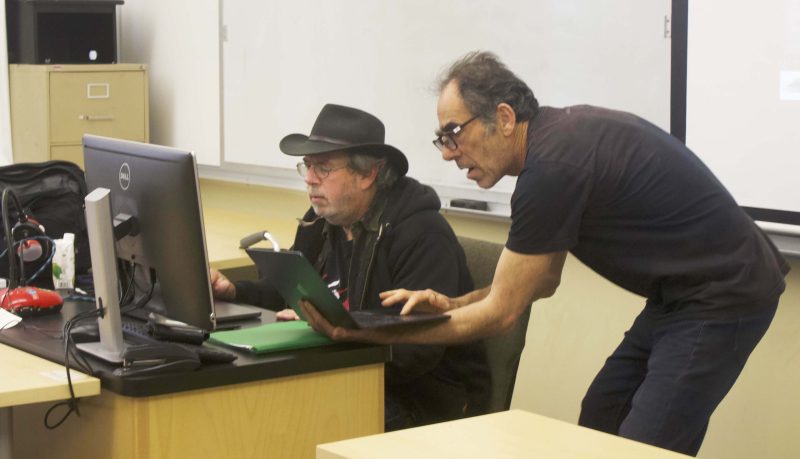
“In the process, you may meet some new people and get to know your neighbors a little better.
“One thing retired people need is a lot of community. You don’t necessarily have to have a computer. You just need a camera.”
For Weston, his love affair with photography began in Bakersfield in the 1960s. He was a 10-year-old who wanted a camera, so he saved up $9.99 to buy one at his local drugstore.
“Honestly, I’m not sure why I wanted a camera so much. But I had to have one. I bought the Kodak Hawkeye 44 because I liked the name,” he said.
‘Something magical’
It was when he started taking photos of his friends and his neighborhood that the fascination kicked in, and he soon bought a slightly fancier camera from Montgomery Ward.
When he got a set of photos back from processing, one picture “just stopped me,” he said. It was a shot of his front yard and the neighbor’s house across the corner. “There was something magical about it, and I couldn’t put my finger on it.
“I went back to where I took the picture and looked at the picture and looked at the scene, and it suddenly hit me – it was the light. The sun was down low, and it was backlighting the grass, so the grass was all lit up. And I was just so enchanted with that picture.”
By the time Weston got to high school, his whole life was playing drums. When he was a junior, his elective Spanish class got canceled, so he decided to take photography instead. “My sister had taken photography, and she had photographed me a couple of times, and it just seemed like she had a really fun time.
“They gave us cameras, they gave us film, they gave us the printing supplies and sent us on our way.”
Despite being taught not much more than how to load the cameras and shoot, by Thanksgiving, he was hooked. “I loved photography.”
A lightbulb moment
Weston kept playing the drums until he was 25 – in college, first at Bakersfield Community College, where he earned an Associate Arts degree, and later at California State University-Bakersfield, where he studied photography and music.
But he still didn’t know what he wanted to do with his life, so he decided to go to Europe. He stayed with a cousin in Norway, and together they visited Denmark, Holland, Sweden, Switzerland, and France.
Thinking back to what his photography teacher in community college told him ignited the idea that this was what he could do with his life. “It kind of came back to me when I was in Europe,” he said. “And I liked that idea, it just kind of gave me chills.”

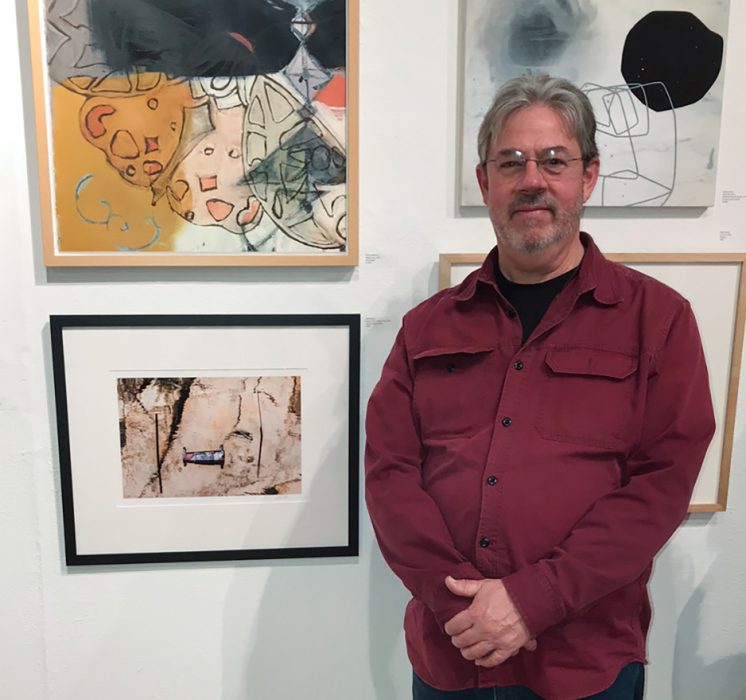
Weston, who supervised the college photo lab and mentored some of the other students, remembered being taken aside and told, ‘You ought to think about teaching; you’re really good at this.’ “
For Weston, photography is a visceral experience. The process takes over, he said. “I find myself settling into my body, and heart and mind get closer, working as one when I’m really in the flow. It’s very similar to the feeling I got when playing music and truly just being in tune with the music.”
So, he cut his trip to Europe short and moved to San Francisco, enrolling at San Francisco State. He graduated in 1985 with a degree in art and a teaching credential that would allow him to teach at the college level. He soon got a job at a camera store in Berkeley.
“I really got to help people to learn how to use their cameras,” he said. “And I convinced management to let me offer classes.”
He taught classes there for two or three years and in the meantime applied for teaching jobs here and there. In 1988, one came up at City College of San Francisco. He was determined to get it.
“I bought a book on interviewing; I really researched it and I went in there and it went well. I knew my stuff,” he said. “And it was like, oh my God, they hired me!”
That ‘Aha!’ look
He taught color printing and beginning photography and had more than 120 students in each of his lecture classes. That’s when his teaching philosophy began to crystallize.
“The same teacher who told me I should be a teacher also told me people had a lot of creativity in them and you had to bring it out,” he said. “I began seeing in my students that if you gave them the technical skills to control their cameras their natural creativity came through.”
And he loves the “aha!” look on their faces when they get something and it makes sense to them. “It looks like they’ve had this course correction and the excitement they show when they’ve done something well, I can’t get enough of that.
“It’s one of the great things I love about teaching, and I learn from them never to forget that.”
What he tries to develop in his students is the intuitive process that guides him.
“I go out and I may have a loose concept that I’m working with. And I’m looking for the compositional elements in a scene in a way that creates the magic for me.”
For about six years, he ventured into wedding photography, inspired by a portrait he saw at a wedding photographer’s convention. “I saw a portrait, and suddenly wanted to take pictures like that,” he said, but mostly he did it “because I knew the photos would be memorable and special for the couple.”
But Weston considers himself a landscape photographer. And he loves to shoot at night.
“I love the seriousness of shooting at night. Sometimes they can have this beautiful ethereal quality to them or because there’s a lot of dark shadows, they can get this insidious quality” he said. “And when that happens, it seems the structures in the photo tend to lose their functional identity, and they get a different personality away from what they were made for. And I really love it when that happens.
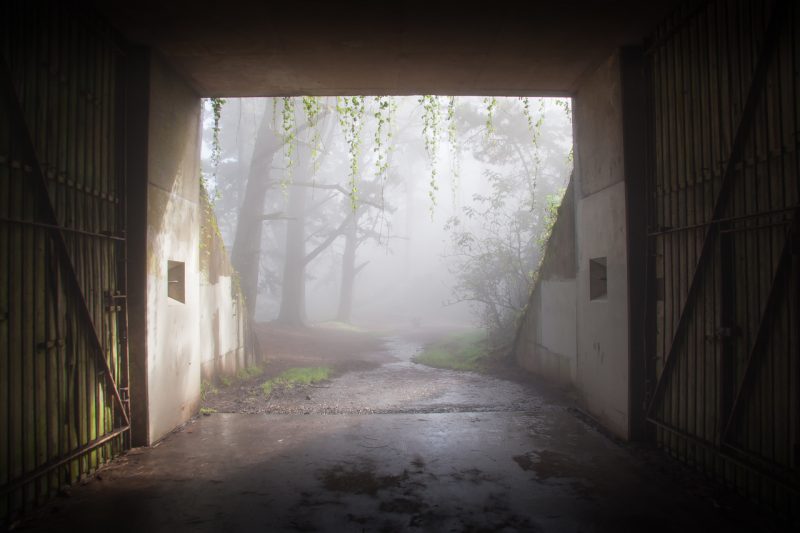
One of his favorite landscape pictures looks through a concrete tunnel in the Marin Headlands into a foggy path bordered by trees. Several people have told him it feels, as he does as if they are walking into a dream. “I consider myself an expressive photographer, and I want to evoke an emotional response.”

His partner, Edie Hoffman, a retired human resources professional and abstract landscape photographer, describes the photo as mysterious and magical, he said. They met at a photo lecture eight years ago and now live in a Berkeley neighborhood called Poet’s Corner.
They go on photography trips together to the North Coast of California, to the Redwoods, and Joshua Tree National Park. They like to photograph trees.
Weston exhibits some of his photographic prints. One was up recently in the Gray Loft Gallery in Oakland. But he hasn’t made a great deal of money selling photographs.
“You’re maybe breaking even or losing money with the cost of framing. But I’ve never had the great fortune of selling a lot of my photos. The one with the tunnel listed for $400 and came within inches of selling.”
Now 66, Weston is getting close to retirement and is looking forward to teaching workshops.
“I could see doing weekend workshops for seniors, like landscape photography, phone photography, portrait photography,” he said. “And I could do workshops for Lightroom (a photo software program) and processing. I think it would be a good service to provide.”


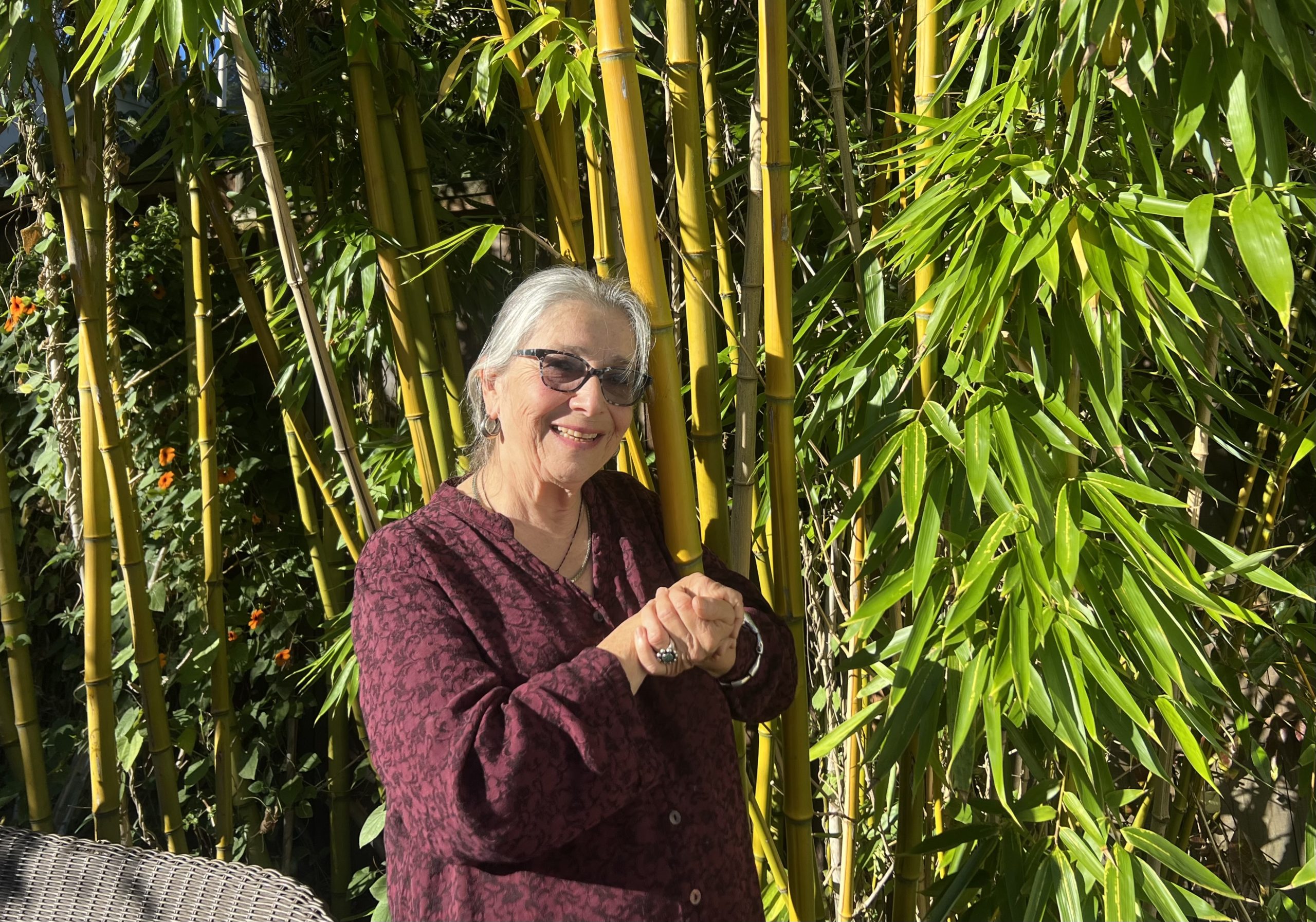
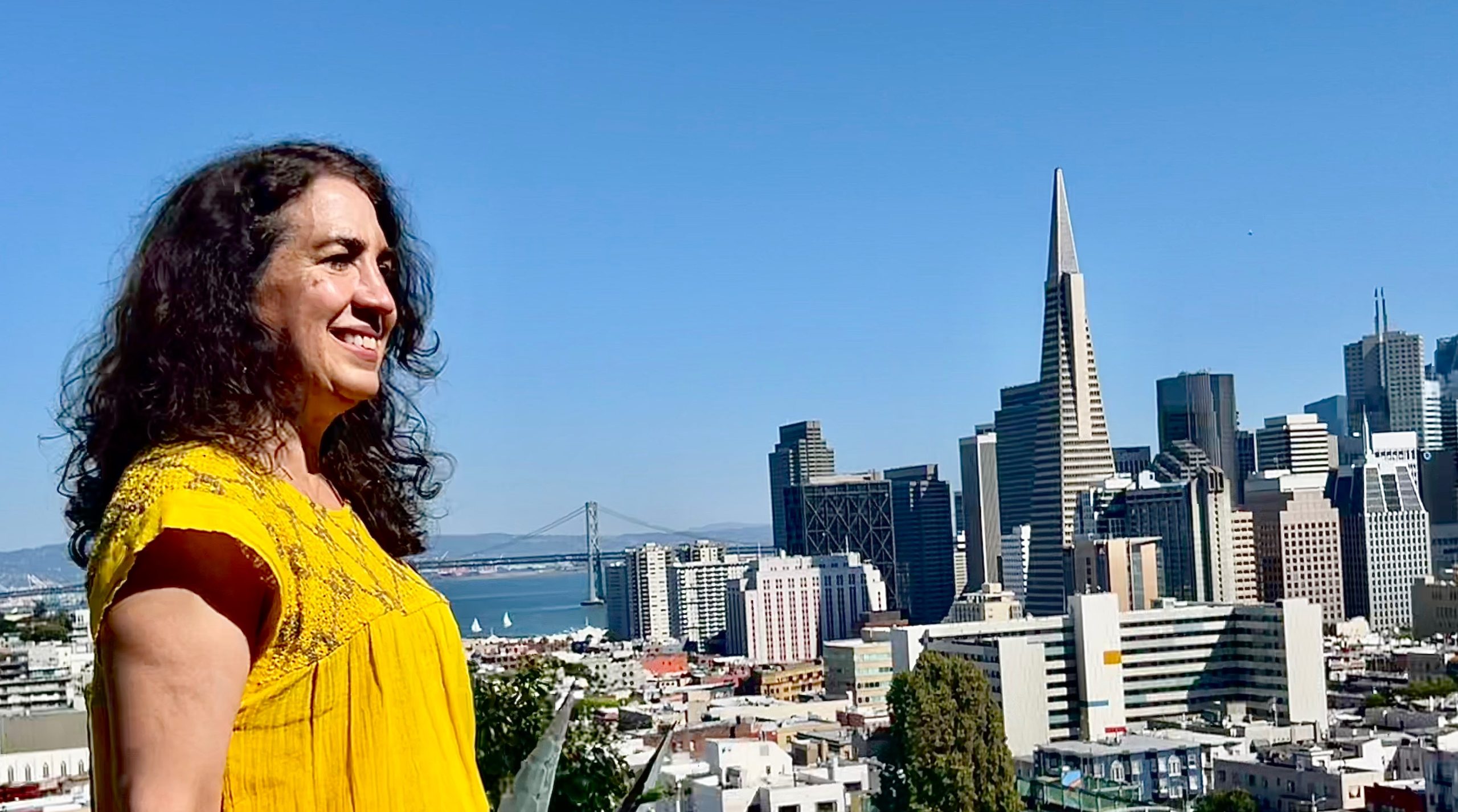
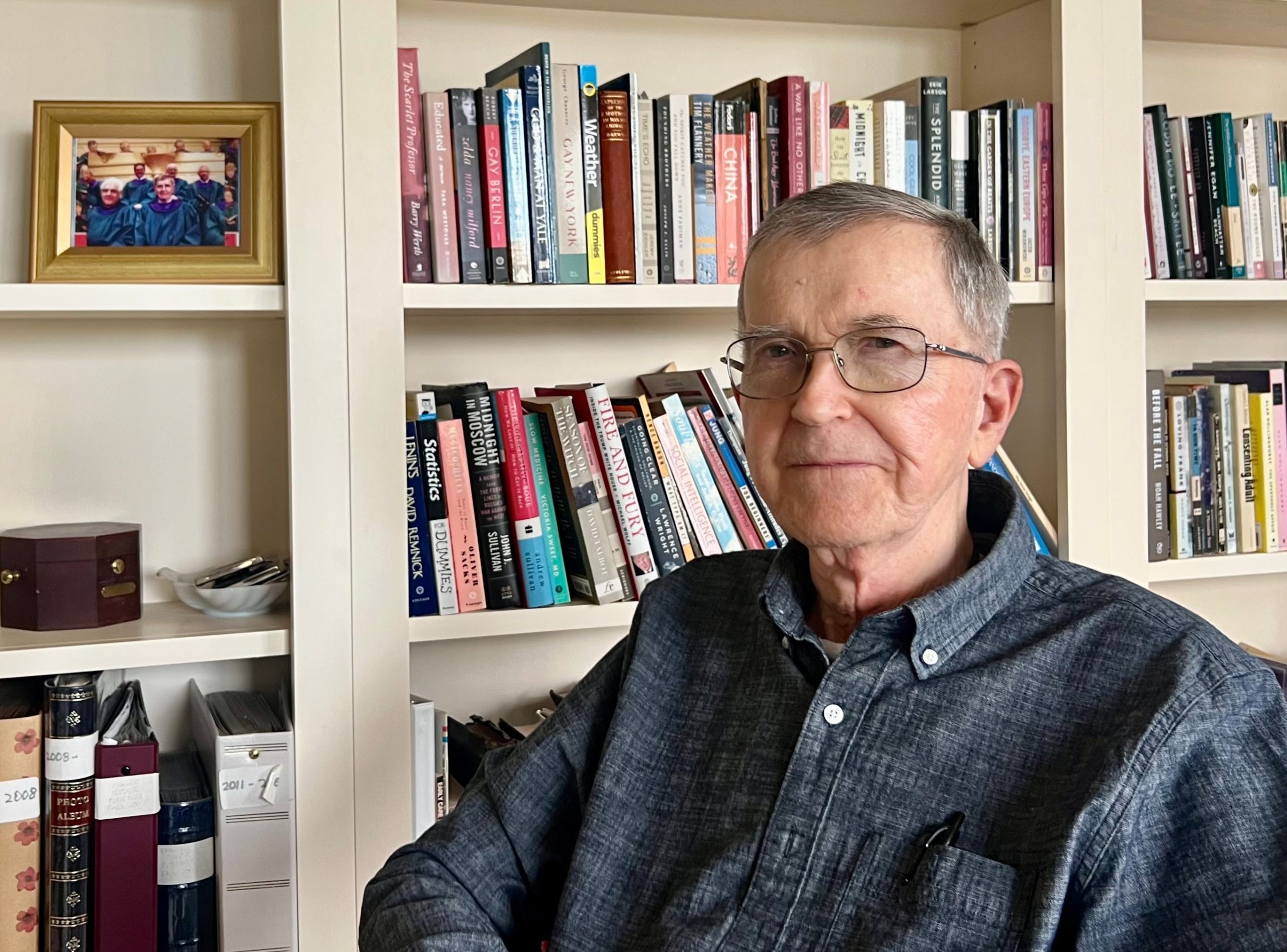

Rosanne Liggett
Liked the story about Jeff Weston a lot - partly because I'm from Bakersfield too and went to the same colleges as Jeff. I've always been interested in photography and if Jeff developed a class for seniors with the CLC or SF Village, I'd definitely try to sign up.